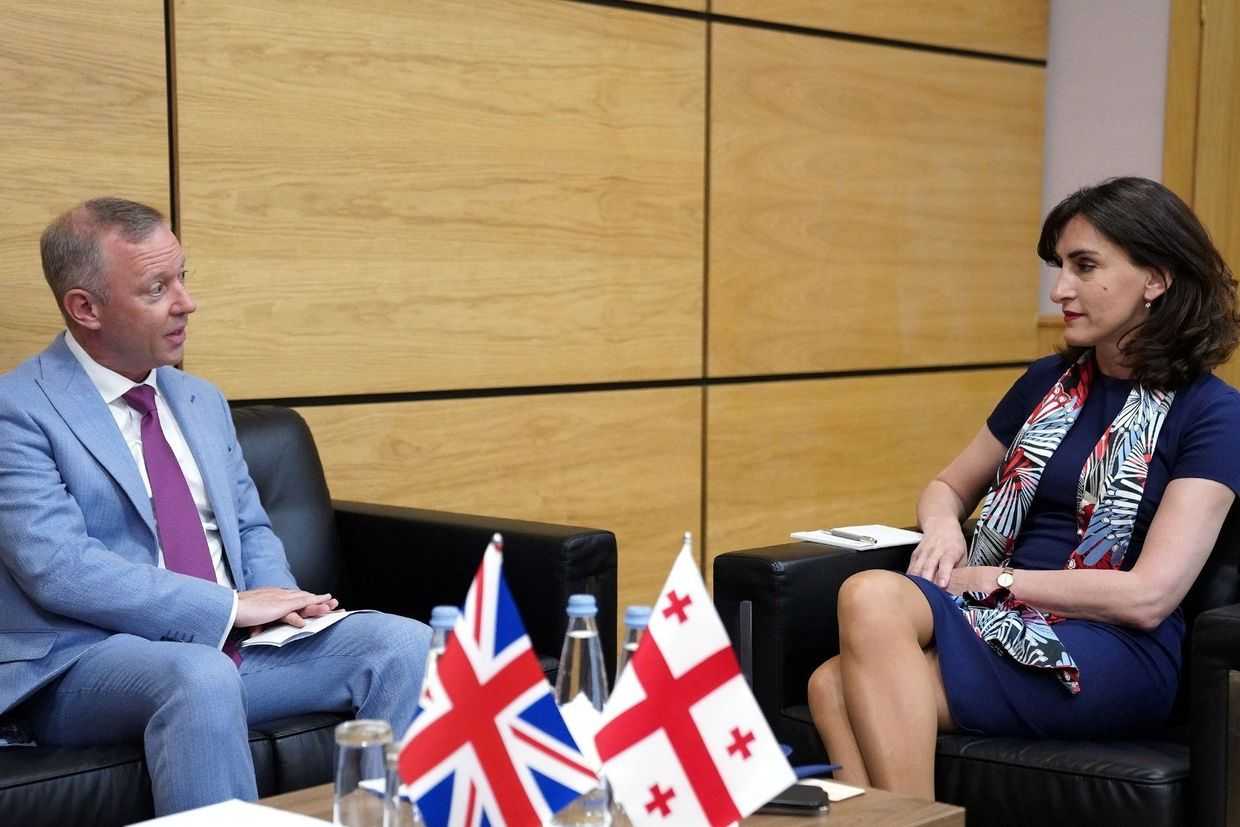
Ketevan Tsikhelashvili, Georgia’s Minister for Reconciliation and Civic Equality, described the humanitarian situation in South Ossetia’s Akhalgori (Leningor) District as ‘extremely alarming’, saying that 13 people fell victim to South Ossetia’s policy of preventing residents from accessing medical treatment in Georgia-controlled territory since last September.
She made the statement on 15 April. A day earlier, Ekho Kavkaza, RFE/RL’s Russian language service covering Abkhazia and South Ossetia, reported two recent fatalities due to lack of healthcare services in Akhalgori settlement, and about another two people in urgent need of medical attention.
South Ossetia remains the only region in the Caucasus where the local authorities have not yet confirmed a single case of COVID-19.
In mid-March, South Ossetia started to gradually close down public life; by the end of the month they introduced a limited lockdown and on 2 April, a day after the first confirmed coronavirus infections in North Ossetia, authorities announced that they were closing the border with Russia.
A day after the first case of coronavirus was confirmed in Georgia, South Ossetia announced that, as of 27 February, it was closing crossing points with Georgia-controlled territory indefinitely.
However, by that time, the residents of South Ossetia’s Akhalgori settlement, predominantly ethnic Georgians, had already been substantially restricted from travelling to the Georgia-controlled territory to the south for five months.
The decision by South Ossetian authorities last September to close down checkpoints leading to Georgia-controlled territory followed a dispute over a forested buffer zone between South-Ossetia-controlled Tsnelisi and the Georgian government-controlled village of Chorchana.
[Read more on OC Media: South Ossetia orders tit-for-tat checkpoint construction in latest border escalation]
Following the stand-off last summer, authorities in Tskhinvali (Tskhinval) allowed Akhalgori residents to access Georgia-controlled territory through the Razdakhan crossing only ‘once every two months’, to collect their pensions and undergo medical procedures.
The Georgian government and several Tbilisi-based rights groups claim that, as a result, Akhalgori residents continue to live without being able to receive adequate medical treatment, and that they have become particularly vulnerable to the dangers of the COVID-19 pandemic.
Akhalgori residents as ‘suspects’
On 6 April, Georgia-based human rights group, Human Rights Centre (HRIDC) noted that, apart from being cut off from Georgia-controlled districts, Akhalgori residents’ lives and health now were at ‘extreme risk’ in part due to ‘inadequate’ local hospital supplies.
HRIDC reported that receiving medical services in Tskhinvali (Tskhinval) was not affordable for residents due to distance and travel costs.
‘People are in need of critically important healthcare services and are deprived of them because the region has been in isolation for months now’, Ketevan Tsikhelashvili said on Wednesday.
Tsikhelashvili called South Ossetia’s actions in Akhalgori District an ‘extension of ethnicity-based discrimination’ against the ‘ethnic Georgian population’.
On 16 April, the Tbilisi-based Democracy Research Institute (DRI) reported that since the outbreak of COVID-19, the South Ossetian authorities have treated Akhalgori District residents as ‘suspects’ that are about to spread the virus in the region.
According to DRI, Akhalgori Georgians were under the impression that South Ossetian security services have been laying the groundwork for convincing residents of South Ossetia that the community would become a vector for the virus — floating the possibility that a Tbilisi relative of an Akhalogori resident would sneak into the District and infect others.
This, DRI reported, has led to ‘groundless’ and ‘discriminatory’ demands from South Ossetian authorities to Akhalgori residents to self-isolate.
Expecting a ‘rush’
Since the novel coronavirus outbreak in Georgia, South Ossetian authorities have condemned the Georgian government’s intention to help Georgian citizens in South Ossetia.
On 7 April, South Ossetian KGB said Georgia could be hiding their numbers of confirmed COVID-19 infections and that Georgia’s expressed wish to help South Ossetia was motivated by their attempt to embezzle an emergency financing package coming from the European Bank for Reconstruction and Development (EBRD).
A month earlier South Ossetian Foreign Minister Dmitry Medoyev insisted that the epidemiological situation was so grave in Georgia that they expected ‘crowds’ of Georgian citizens to ‘rush into more protected countries’, through South Ossetia.
In recent years, Georgia’s Healthcare Referral Program has been offering residents of South Ossetia and Abkhazia, irrespective of their citizenship, free medical services.
For ease of reading, we choose not to use qualifiers such as ‘de facto’, ‘unrecognised’, or ‘partially recognised’ when discussing institutions or political positions within Abkhazia, Nagorno-Karabakh, and South Ossetia. This does not imply a position on their status.









